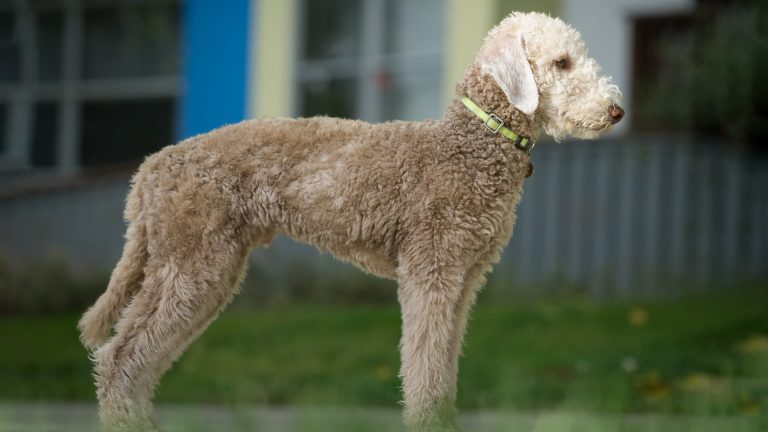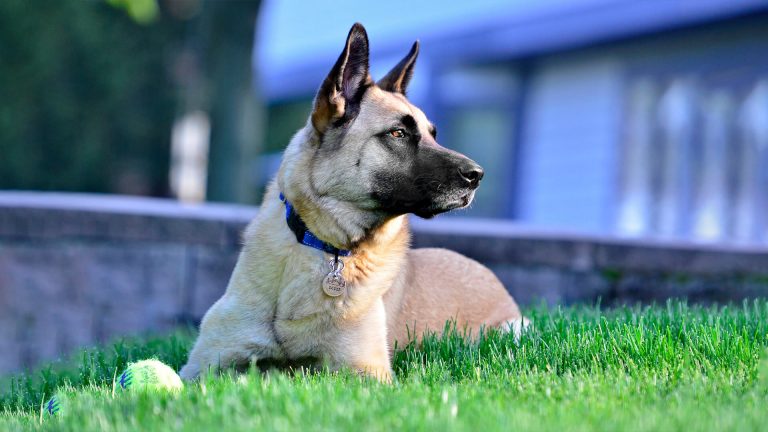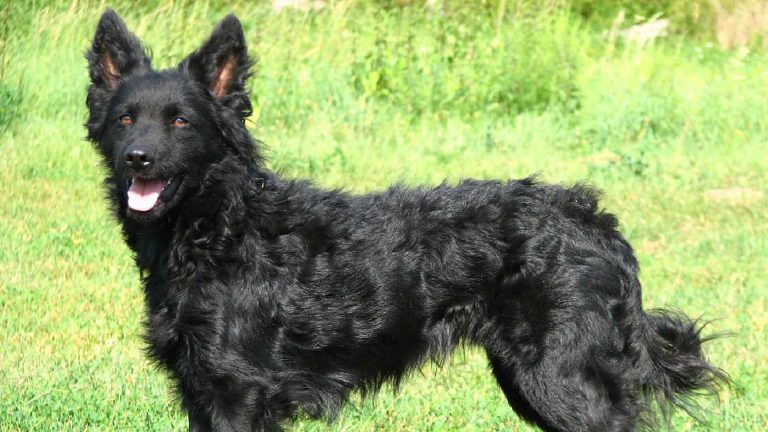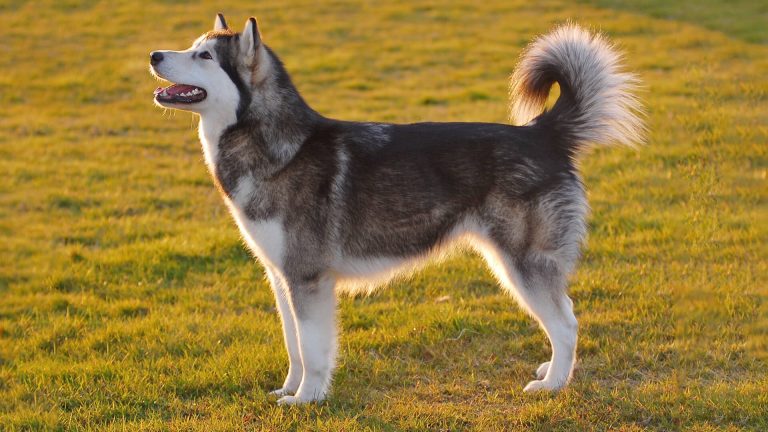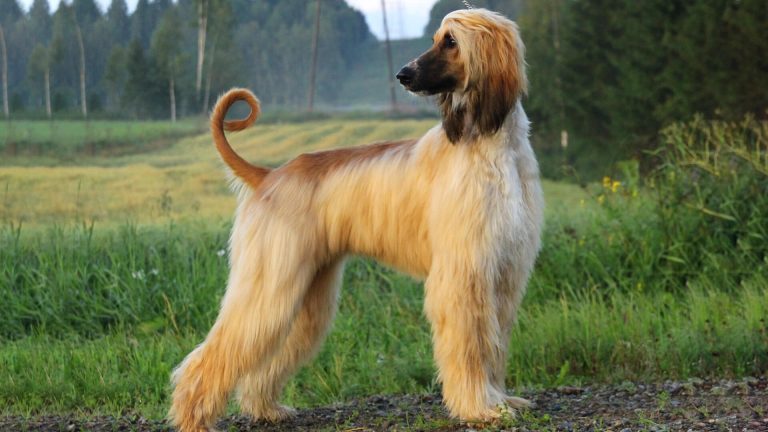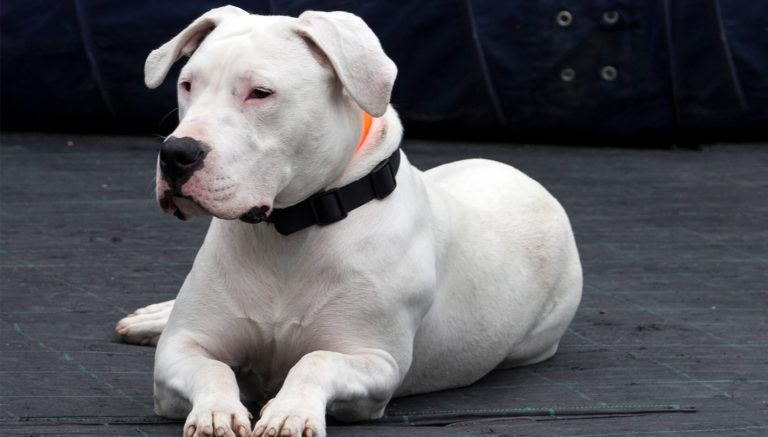The Akita is a breed of dog that originated in Japan. It is a large, muscular breed that was originally used for hunting and guarding. The Akita is known for its loyalty, intelligence, and strong protective instincts.
The Akita is named after the Akita prefecture in northern Japan, where it was developed. The breed has a long history in Japan, with references to it dating back to the seventeenth century. The meaning of the word Akita is autumn ricefield. The Akita was traditionally used for hunting large game, such as bears and wild boars, and for guarding the home.
The Akita is a breed that is highly prized in Japan and is considered a national treasure. It is also popular in other parts of the world, including the United States, where it is recognized by the American Kennel Club (AKC). The Akita has a strong, powerful build and a thick, double coat that is typically brindle, red, fawn, or white in color. It has a distinctive face with small, triangular ears and a broad, powerful head.
Distinctive Features of Akita
| Scientific name | Canis lupus familiaris |
| Lifespan | Up to 14 years |
| Color | Brindle, red, white, fawn |
| Size | Up to 28 inches |
| Weight | Up to 130 lbs |
| Unique trait | Thick, double coat |
| Famous for | National treasure in Japan |
| Temperament | Independent, strong-willed |
| Maintenance | High |
| Adaptability | Moderate |
| Behavior with kids | Generally good with children |
| Behavior with other pets | Can be aggressive if not socialized |
| Socialization | Requires consistent socialization |
The Akita is a large breed of dog, with males standing 26-28 inches tall at the shoulder and weighing between 70-130 pounds. Females are slightly smaller, standing 24-26 inches tall and weighing between 55-110 pounds. The Akita has a strong, powerful build and a thick, double coat that is typically brindle, red, or white in color. It has small, triangular ears that stand upright, and a broad, powerful head with a strong, square muzzle.
The Akita is known for its loyalty, intelligence, and strong protective instincts. It is an independent breed that requires consistent training and socialization to prevent it from becoming aggressive or dominant. The Akita is generally good with children, but it may be reserved or aloof with strangers and may be aggressive towards other dogs if not properly socialized.
The Akita has a lifespan of 10-14 years. It is generally a healthy breed, but it can be prone to certain health issues that we will talk about later in this article.
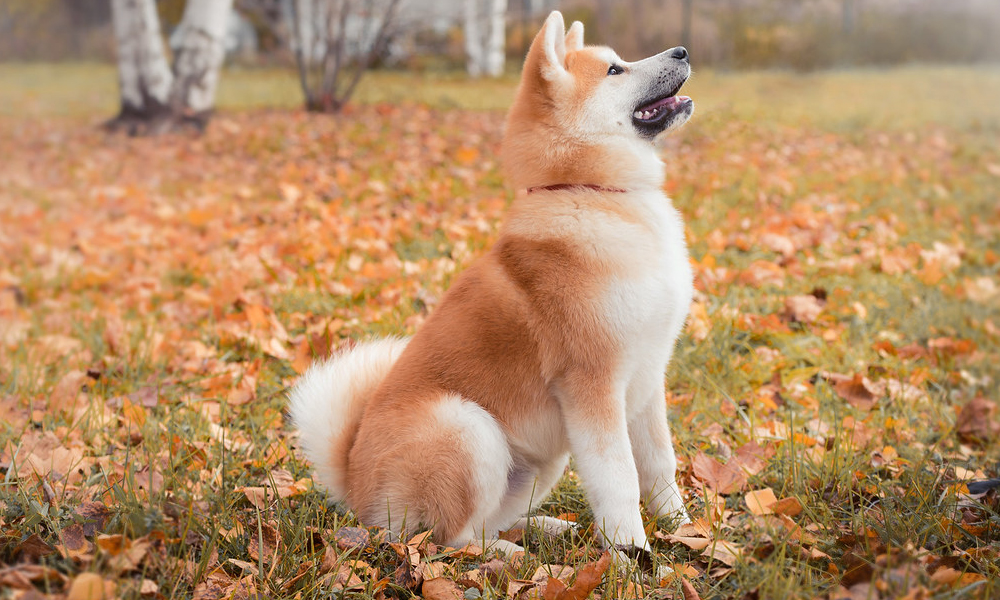
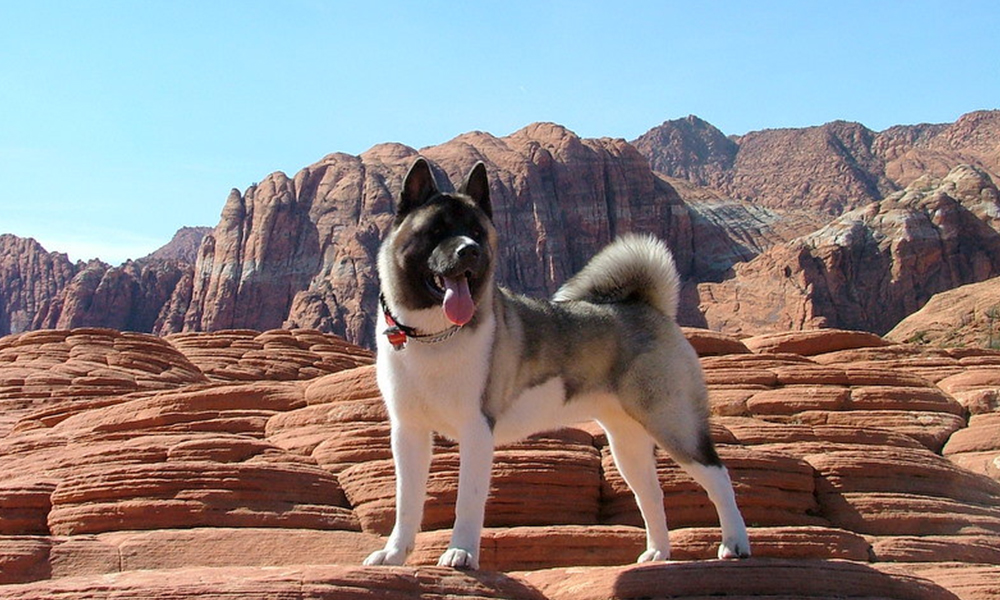
How to Take Care of Pet Akita?
Welcoming an Akita into your life means embracing the loyalty and devotion of this majestic breed. With their noble presence and unwavering loyalty, Akitas form deep bonds with their owners. Prepare for a lifetime of love and companionship, but also be ready to provide consistent training, socialization, and plenty of affection to help them thrive.
How to Setup Habitat for Pet Akita?
Here are some tips for setting up a suitable habitat for a pet Akita:
- Provide a spacious, secure yard: Akitas need plenty of space to run and play, so it is important to have a secure yard for them to enjoy. Make sure the yard is properly fenced to prevent the Akita from escaping or getting loose.
- Offer plenty of shade: Akitas have thick, double coats that can make them prone to overheating, so it is important to provide plenty of shade in their outdoor living space.
- Provide a secure, weather-resistant shelter: It is important to provide a secure, weather-resistant shelter for your Akita to retreat to when it is outside. The shelter should be large enough for the Akita to stand up and turn around in, and it should be raised off the ground to keep it dry.
- Keep the Akita's living space clean and well-maintained: Make sure to clean the Akita's living space regularly and keep it free of debris and hazards.
- Provide plenty of mental and physical stimulation: Akitas are intelligent and energetic dogs that need plenty of mental and physical stimulation. Make sure to provide plenty of toys and activities to keep your Akita entertained and engaged.
By providing a spacious, secure yard, plenty of shade, a secure shelter, and plenty of mental and physical stimulation, you can create a suitable habitat for your pet Akita.
What to Feed Pet Akita?
Akitas are large, active dogs that require a diet that is high in protein and fat to support their energy needs. Here are some tips for feeding your Akita:
- Choose a high-quality dog food: Look for a dog food that is formulated for large breeds and that is made with high-quality, whole-food ingredients. Avoid dog foods that contain cheap fillers or artificial preservatives.
- Consider the Akita's age and activity level: Akitas have different nutritional needs at different stages of life. Puppies and growing dogs need more calories and nutrients than adult dogs, while senior dogs may require a different balance of nutrients. It is important to choose a dog food that is appropriate for your Akita's age and activity level.
- Monitor your Akita's weight: It is important to monitor your Akita's weight and adjust its food intake as needed to maintain a healthy body condition. Overweight dogs are at increased risk for health problems such as diabetes, joint problems, and heart disease.
- Offer a balanced diet: In addition to a high-quality dog food, you can also offer your Akita a variety of whole-food treats and supplements to provide additional nutrients. Just be sure to keep treats to a minimum, as they can contribute to weight gain if fed in excess.
By choosing a high-quality dog food and offering a balanced diet, you can help ensure that your pet Akita gets the nutrients it needs to stay healthy and active. It is also important to provide plenty of fresh water at all times.
What to Avoid Feeding Pet Akita?
There are several things that you should avoid feeding your pet Akita to help keep it healthy and happy. Some common foods that are toxic to dogs, including Akitas, include:
- Chocolate: Chocolate contains theobromine, which can be toxic to dogs in large amounts. Dark chocolate and unsweetened baking chocolate contain higher amounts of theobromine and are more toxic than milk chocolate.
- Grapes and raisins: Grapes and raisins can cause kidney failure in dogs. Even a small amount can be toxic, and the effects can occur within a few hours of ingestion.
- Onions and garlic: Onions and garlic contain compounds that can damage a dog's red blood cells, leading to anemia. These foods should be avoided in all forms, including powdered or cooked.
- Macadamia nuts: Macadamia nuts can cause tremors, hyperthermia, and weakness in dogs.
- Avocado: Avocado contains persin, which can cause vomiting and diarrhea in dogs.
- Alcohol: Alcohol can be toxic to dogs and can cause serious health problems, including vomiting, diarrhea, difficulty breathing, and even death.
In addition to avoiding toxic foods, it is also important to avoid feeding your Akita high-fat or high-sugar foods, as these can contribute to obesity and other health problems. It is also important to avoid feeding your Akita bones, as they can splinter and cause choking or other injuries.
Brushing, Bathing & Grooming Needs of Pet Akita
Akita's have a thick, double coat that requires regular grooming to keep it healthy and looking its best. Here are some tips for brushing, bathing, and grooming your pet Akita:
- Brush your Akita regularly: Akitas have a double coat that consists of a soft, downy undercoat and a longer, coarser topcoat. The coat sheds heavily, so it is important to brush your Akita regularly to remove loose hair and prevent matting. Use a slicker brush or a comb designed for double-coated breeds to brush your Akita's coat.
- Bath your Akita as needed: Akitas do not require frequent bathing, but they should be bathed every few months to keep their coat clean and healthy. Use a high-quality dog shampoo and make sure to rinse thoroughly to avoid leaving any soap residue on the coat.
- Trim your Akita's nails: Akitas' nails should be trimmed regularly to keep them at a healthy length. If the nails get too long, they can cause discomfort and make it difficult for the Akita to walk. Use a dog-specific nail trimmer or have a professional groomer do it.
- Check your Akita's ears: Akitas' ears should be checked regularly for signs of infection, such as redness, swelling, or discharge. Clean your Akita's ears as needed using a veterinarian-approved ear cleaning solution and cotton balls.
- Brush your Akita's teeth: It is important to brush your Akita's teeth regularly to help prevent dental problems. Use a toothbrush and toothpaste designed for dogs, and be sure to brush all of the teeth, including the back molars.
By following these grooming tips and providing regular veterinary care, you can help keep your pet Akita's coat and skin healthy and looking its best. It is also important to be mindful of the Akita's grooming needs and to adjust your grooming routine as needed based on your Akita's age, activity level, and overall health.
Health Concerns of Pet Akita
Like all breeds, Akitas can be prone to certain health concerns. Some common health issues that can affect Akitas include:
- Hip dysplasia: Hip dysplasia is a condition in which the hip joint does not form properly, leading to pain and lameness. Akitas are prone to hip dysplasia, so it is important to have them screened for this condition.
- Eye problems: Akitas can be prone to eye problems such as cataracts, glaucoma, and progressive retinal atrophy. It is important to have your Akita's eyes checked regularly by a veterinarian and to seek treatment if any issues are detected.
- Thyroid disorders: Akitas can be prone to thyroid disorders, which can cause weight gain, hair loss, and other health problems. It is important to have your Akita's thyroid levels checked regularly by a veterinarian and to seek treatment if any issues are detected.
- Bloat: Bloat, also known as gastric dilatation-volvulus (GDV), is a serious condition in which the stomach becomes distended and twisted. Akitas are prone to bloat, so it is important to be aware of the signs and to seek immediate veterinary care if you suspect your Akita is suffering from bloat.
- Skin Problems: Akita breed is prone to various skin disorders, such as sebaceous adenitis. In this disease, Akita suffers hair loss resulting in permanent bald spots, along with lesions from secondary infections and some kind of bad odor.
- Allergies: Akitas can be prone to allergies, which can cause symptoms such as itchy skin, ear infections, and diarrhea. It is important to identify and address the cause of your Akita's allergies to help manage the condition.
Training and Playing With Pet Akita
Training and playing with your pet Akita can help keep it healthy, happy, and well-behaved. Here are some tips for training and playing with your Akita:
- Start training early: It is important to start training your Akita as soon as you bring it home, as this will help establish a strong bond between you and your pet. Start with basic obedience commands such as "sit," "stay," and "come," and use positive reinforcement techniques like praise, treats, and toys to reward good behavior.
- Provide plenty of mental and physical stimulation: Akitas are intelligent and energetic dogs that need plenty of mental and physical stimulation to stay happy and healthy. Offer a variety of toys and activities to keep your Akita entertained and engaged, and make sure to provide daily exercise through activities like walks, runs, and playtime.
- Socialize your Akita: It is important to socialize your Akita early and often to help it become comfortable around people and other animals. Expose your Akita to a variety of environments and people and supervise interactions to help prevent aggression or fearfulness.
- Be consistent and patient: Training and playing with your Akita will require patience and consistency. Set clear boundaries and rules and be consistent in enforcing them. Don't be discouraged if your Akita doesn't learn a new skill right away – it will take time and repetition for your pet to understand what you are asking of it.
By training and playing with your Akita and providing plenty of mental and physical stimulation, you can help keep your pet happy, healthy, and well-behaved.
Other Pet to Keep or Avoid with Akita
Akitas are known for their strong protective instincts and can be territorial, so it is important to consider their temperament when deciding what other pets to keep with them. Here are some things to consider:
- Keep similar-sized pets: It is generally safer to keep pets of similar size with your Akita. Smaller pets, such as cats and small dogs, may be at risk of injury if they are played with too rough by an Akita.
- Socialize your Akita: Proper socialization is important for all pets, but it is especially important for Akitas. Expose your Akita to a variety of people and animals and supervise interactions to help prevent aggression or fearfulness.
- Supervise interactions: It is important to supervise all interactions between your Akita and other pets, especially when they are first introduced. This will help prevent any accidents or conflicts from occurring.
- Consider the Akita's temperament: Not all Akitas are the same, and some may be more prone to aggression or territorial behavior than others. It is important to consider your Akita's individual temperament and to adjust your pet-keeping decisions accordingly.
Consider your Akita's temperament and socialize and supervise it properly when introducing it to other pets.
Facts About Akita
Here are a few interesting facts about the Akita breed:
- In Japan, the Akita is considered a national treasure and is protected by law. It is also recognized as a cultural symbol of Japan.
- Akita was originally developed in Japan as a hunting breed, used to track and hunt large game such as bears and wild boars.
- Akitas are known for their loyalty and strong protective instincts. They are often very devoted to their owners and make great companions.
- According to the Guinness Book of World Records, the longest living Akita has died at the age of 26 years in Japan, it is equivalent to more than 125 years of human age.
Frequently Asked Questions About Akita
Here are some generally asked questions about Akita:
Is the Akita a good family dog?
Akitas can be good family dogs if they are properly trained and socialized. They are generally good with children, but they can be reserved or aloof with strangers and may be aggressive towards other dogs if not properly socialized. It is important to socialize your Akita from an early age and to provide consistent training to help prevent aggression or fearfulness.
Do Akitas require a lot of grooming?
Akitas have a thick, double coat that requires regular grooming to keep it healthy and looking its best. This may include brushing, bathing, and trimming the nails. Akitas also shed heavily, so it is important to brush their coat regularly to remove loose hair and prevent matting.
How much exercise do Akitas need?
Akitas are energetic dogs that require daily exercise to stay happy and healthy. They need at least one to two hours of exercise per day, including walks, runs, and playtime. It is important to provide your Akita with plenty of opportunities for physical activity to help keep it healthy and fit.

